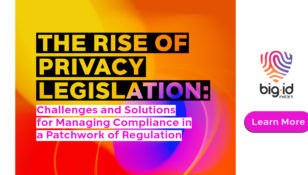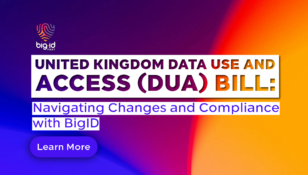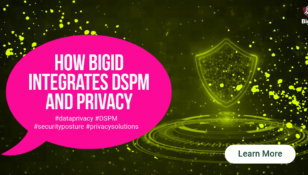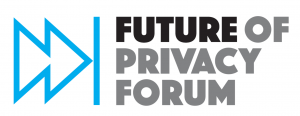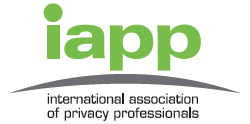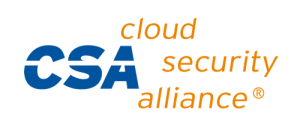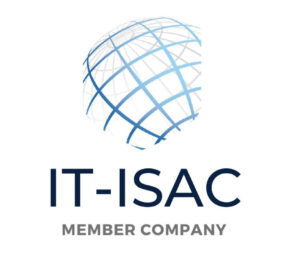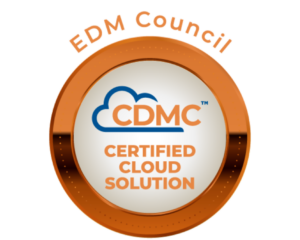What Government Agencies Need to Know for Privacy Act 1974
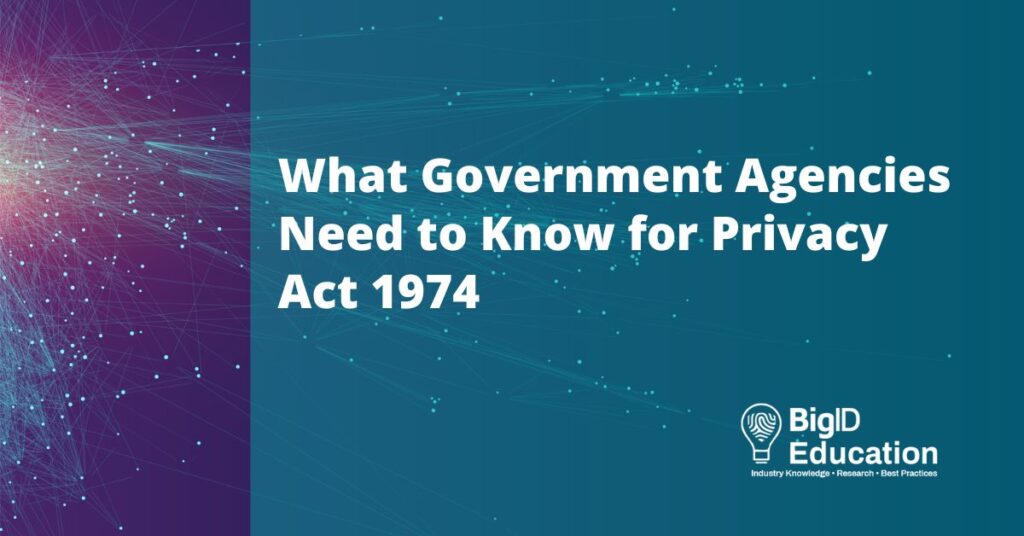
Enacted in 1974, the U.S. Privacy Act is the primary data privacy regulation governing the records of the Federal U.S. government.
The purpose of the U.S. Privacy Act is to establish a code of “fair information practices” that protect individuals’ personal and sensitive data — and with which federal agencies must comply.
The act: “balances the government’s need to maintain information about individuals with the rights of individuals to be protected against unwarranted invasions of their privacy stemming from federal agencies’ collection, maintenance, use, and disclosure of personal information about them.”
The Privacy Act of 1974 was amended through the Computer Matching and Privacy Protection Act of 1988, which added protections for subjects whose records are used in automated matching programs.
Who Does the Privacy Act Protect?
The Act protects the rights of “U.S. citizens or lawful permanent resident aliens” — with the exception of people who have died.
It regulates data that the federal government maintains in various “systems of records” — or, records controlled by various agencies. Covered records must be retrievable by a personal identifier that belongs to any individual, like a name or social security number.
Data Privacy Principles
The Privacy Act protects individuals on the three principles of:
- transparency
- legitimate purpose
- proportionality
Transparency concerns the right of U.S. citizens and other covered individuals to request their records — but is subject to certain exemptions outlined below.
Legitimate Purpose covers the right of individuals to request a change to any of their records that are not accurate, relevant, timely, or complete.
Proportionality regards the right of individuals to be protected against unwarranted invasion of their privacy resulting from the collection, maintenance, use, and disclosure of their personal information.
Conditions of Disclosure and Individual Rights Under the Privacy Act of 1974
The Privacy Act requires that agencies give the public notice of their systems of records by publication in the Federal Register.
The act does not permit government agencies to disclose an individual’s information without their written consent — except under 12 defined conditions, or “exemptions,” that you can read below. The act states, “No agency shall disclose any record which is contained in a system of records by any means of communication to any person, or to another agency, except pursuant to a written request by, or with the prior written consent of, the individual to whom the record pertains.”
Additionally, the Privacy Act gives individuals the right to access, review, and make corrections to their records that have been disclosed — again, with certain exceptions — and it requires agencies to maintain and be able to prove various record-keeping requirements.
DOJ Systems of Records
The Privacy Act defines a system of records as a “group of any records under the control of any agency from which information is retrieved by the name of the individual or by some identifying number, symbol, or other identifier assigned to the individual.”
The act covers systems of records that are held under 37 federal agencies — and those agencies must publish systems of records notices (SORNs) in the Federal Register.
These agencies include the Department of Justice (DOJ), Federal Bureau of Investigation (FBI), INTERPOL Washington, the Office of the Attorney General (OAG), Office of Public Affairs (PAO), Drug Enforcement Administration (DEA), Civil Rights Division (CRD), Board of Immigration Appeals (BIA), Bureau of Alcohol, Tobacco, Firearms, and Explosives — and many more.
Exemptions to Consent Rights and Disclosure Requirements
There are 12 important exemptions that allow the use or disclosure of personal records even without consent. These exceptions are:
- To officers or employees of an agency who need the record to perform their duties
- For certain disclosures under the Freedom of Information Act (FOIA)
- For “routine uses” within a government agency
- To the Census Bureau for planning or carrying out a census or related survey
- For solely statistical, research, or reporting purposes if record is de-identified
- To the National Archives and Records Administration under certain conditions
- For law enforcement purposes
- For compelling circumstances affecting the health or safety of an individual
- To either House of Congress for congressional investigations
- To the Comptroller General, or any of his authorized representatives, in the course of the performance of the duties of the Government Accountability Office
- Pursuant to the order of a court of competent jurisdiction
- To a consumer reporting agency in accordance with section 3711(e) of title 31
Penalties and Fines for Violations
Most violations of the Privacy Act of 1974 result in a fine of up to $5,000 and misdemeanor charges.
These violations can include the willful disclosure of prohibited material to unauthorized parties, willfully obtains protected records under false pretenses, and willfully maintains a system of records without meeting notice requirements, and more.
The act offers no private right of action.
FOIA vs Privacy Act 1974
The Freedom of Information Act (FOIA), which went into effect in 1967, and the Privacy Act of 1974 both concern individuals’ access to federal records — and are aligned to work together to grant people as much access as possible, given the exemptions above, as well as nine FOIA exemptions that primarily protect personal privacy and national security.
The primary difference between the two regulations is that the FOIA gives the public the right to access government records from any federal agency (and is commonly considered the law that keeps the federal government in check), while the Privacy Act protects individuals’ information from unauthorized release and disclosure — while also providing rights for them to access it.
Protect Federal Data and Maintain Compliance
BigID’s data intelligence platform enables federal agencies to discover, map, catalog, and take action on all sensitive data regulated by the Privacy Act of 1974, classify data at the identity level, and tag data according to exemptions, policies, and more — across all covered agencies.
BigID helps protect the rights of U.S. citizens and lawful residents by:
- identifying and mitigating data duplication across the federal landscape
- identifying overexposed data access issues
- automating data subject access requests (DSARs) at scale
- tracking disclosures to third parties
… and ultimately reducing data risk across the federal landscape.
Find out more about how to mitigate risk on sensitive and regulated data — and comply with the fair information practices required by the Privacy Act. See BigID in action with a 1:1 demo.



